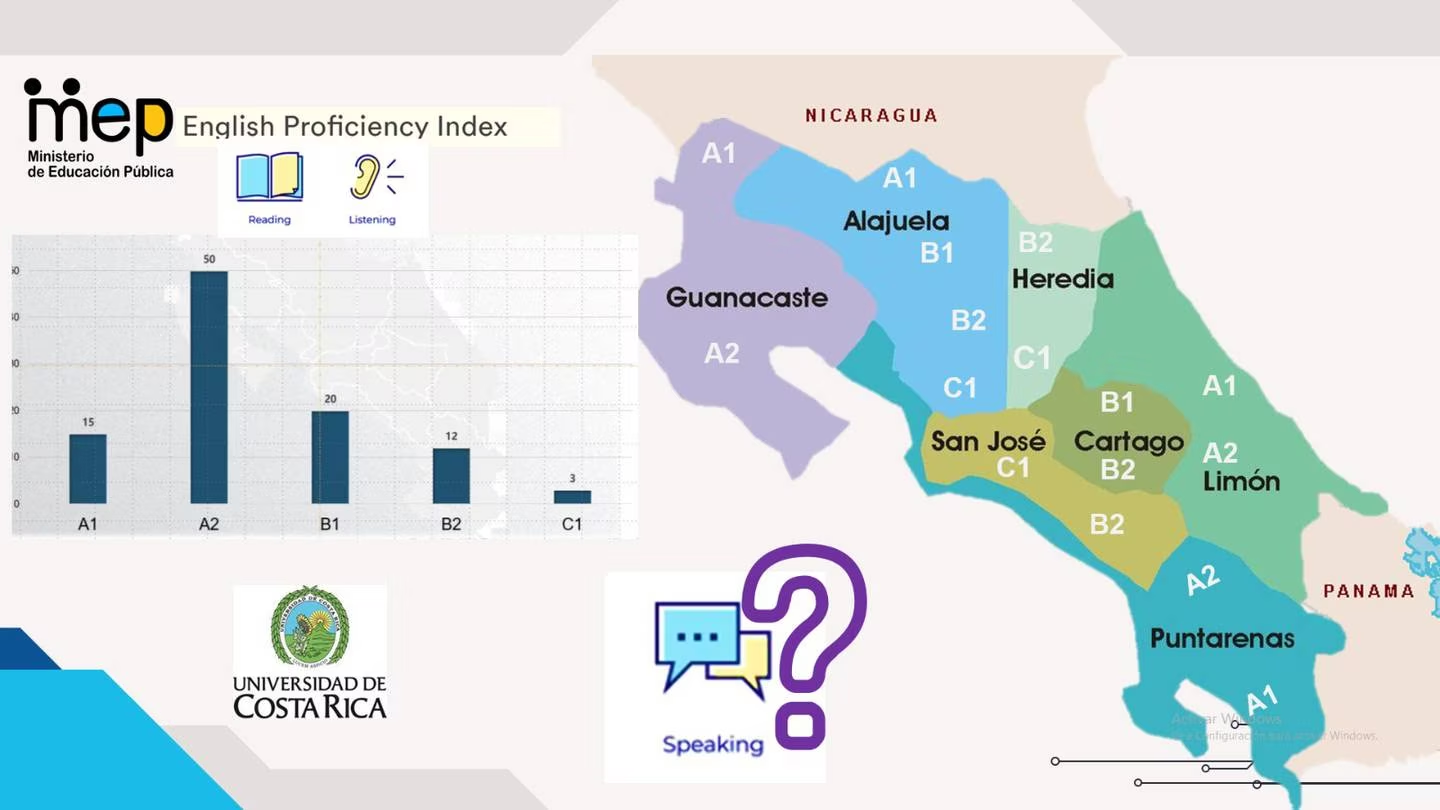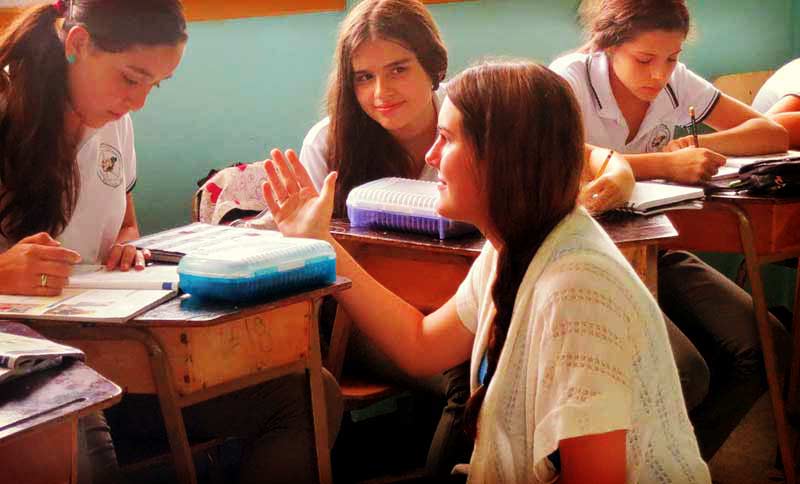Costa Rica stands out as the solitary Latin American nation with a comprehensive English proficiency map, distinguishing it as a regional leader in linguistic prowess and educational strategy.
A Unique Linguistic Achievement
At the AIRiAL 2023 conference, hosted at Columbia University’s Teachers College, researchers revealed this English proficiency mapping, grounded in the Common European Framework of Reference for Languages (CEFR). The event aimed to foster dialogue among scholars and researchers dedicated to applied linguistics and artificial intelligence (AI).

Mapping Methodology
The English proficiency map emerged from linguistic proficiency tests, administered by the University of Costa Rica (UCR) to students between 2019 and 2022. According to Allen Quesada, the director of UCR’s School of Modern Languages, these tests effectively classified students into performance scales, ranging from A1 (beginner) to C1 (advanced).
UCR’s Significant Contribution
Quesada praised UCR’s robust, reliable, and fair English assessment tool, which was instrumental in achieving this linguistic mapping. He noted that UCR developed various test formats, including online, hybrid, and offline versions, to accommodate different student populations and modalities, ensuring inclusivity and accessibility for all students.
Provincial English Proficiency Levels
Data on reading and listening skills revealed varied proficiency levels across provinces. Residents in Guanacaste, Puntarenas, and Limón displayed A1 and A2 levels, while those in Heredia exhibited B2 and C1 levels. Cartago residents showed B1 and B2 proficiency, San José residents demonstrated C1 and B2, and Alajuela had representatives across all levels, excluding A2.
Costa Rica’s Global Ranking
Costa Rica’s noteworthy efforts in enhancing English proficiency haven’t gone unnoticed. A study by English First ranked the country first in Central America and second in Latin America, right behind Argentina, in terms of young adults’ English mastery. Globally, Costa Rica secured the 37th position, with San José recognized as the top Latin American capital for English proficiency.
Precision in Assessment
UCR’s use of AI in adaptive testing ensured a high degree of precision in the evaluation, garnering attention at AIRiAL 2023. The institution is currently developing adaptive tests that rapidly assess students’ language proficiency levels, providing a personalized examination experience. This approach allows for fairer and more accurate evaluations.
Future of Linguistic Testing
Despite UCR’s valuable contributions to linguistic assessments, the Ministry of Public Education (MEP) decided to discontinue these tests in March 2023. In response, UCR resolved to donate 10,000 tests each for evaluating English oral proficiency in diversified education and primary students, as well as 5,000 French evaluations and 60 Italian assessments for oral and written comprehension.
Maintaining Monitoring Efforts
Even if the MEP persists in rejecting UCR-crafted tests, the university intends to continue donating exams to monitor student performance. According to Quesada, monitoring secondary students’ linguistic performance is crucial for validating the proficiency map, which he believes is unlikely to change significantly in the next five years.
Costa Rica’s provincial English proficiency map symbolizes a significant leap in language education and assessment. This initiative not only contributes to a better understanding of the nation’s linguistic landscape but also serves as a benchmark for other countries in Latin America to aspire towards and emulate.

